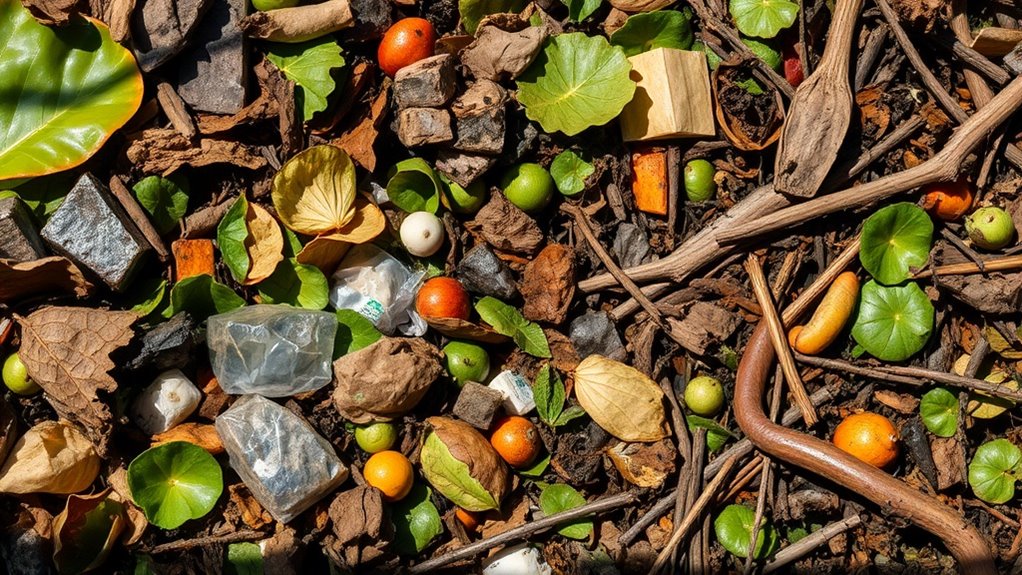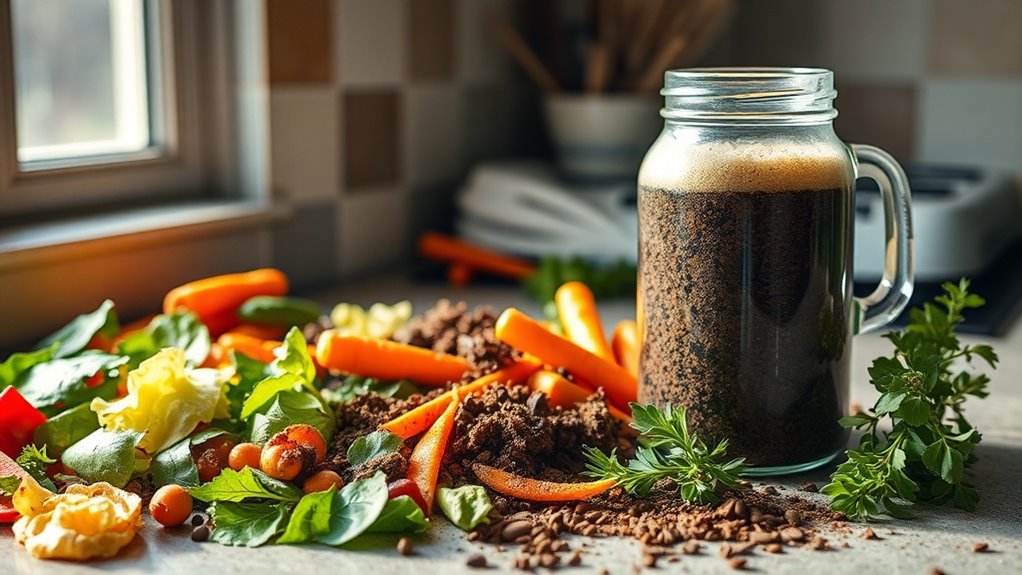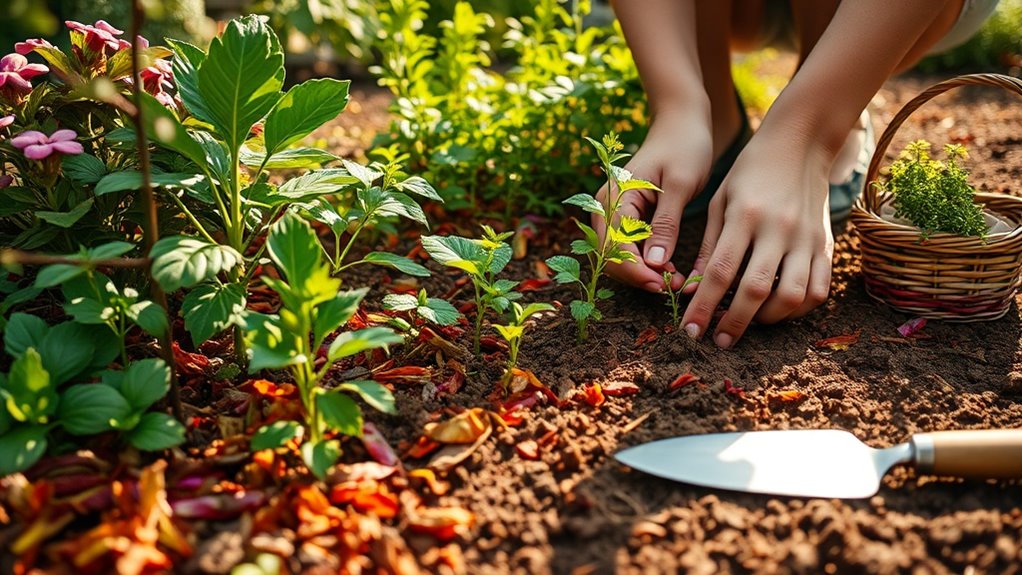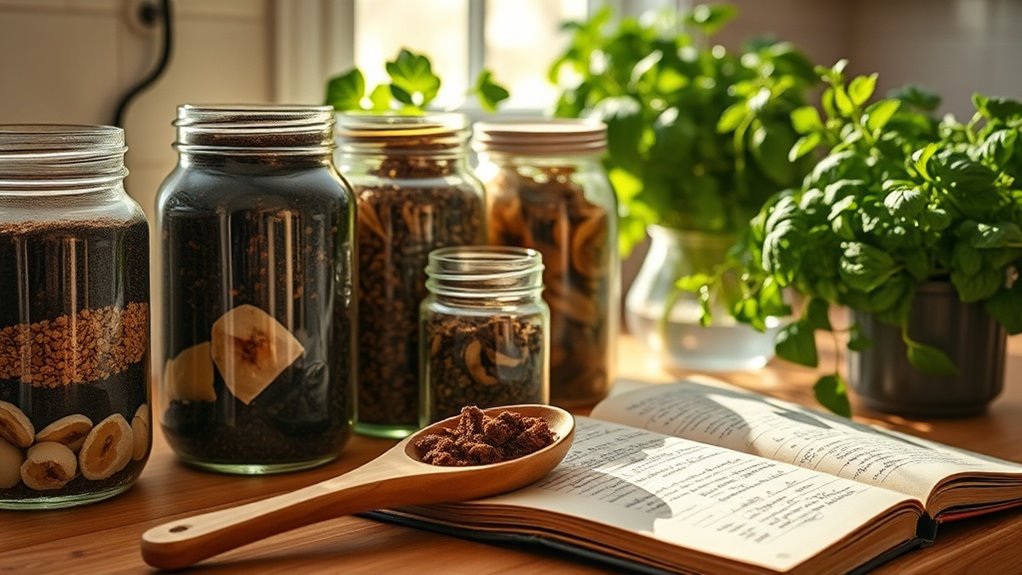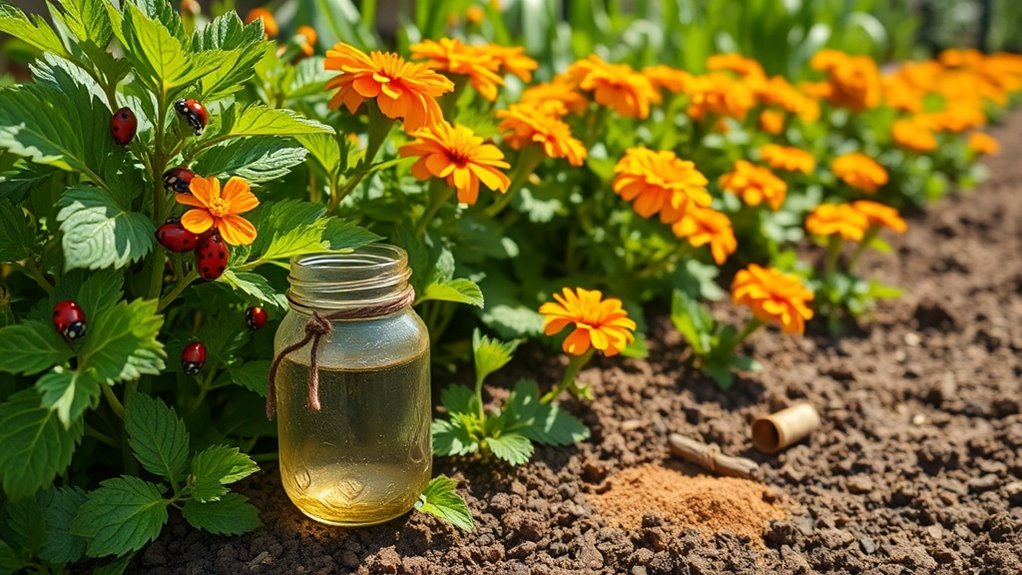Composting Mistakes That Slow Down the Process
Even the best intentions can lead to composting blunders that thwart your gardening ambitions. You might think tossing scraps in a bin is enough, but inadequate aeration and a poor carbon to nitrogen ratio could be your downfall. Without proper attention, you risk attracting pests and complicating the process with non-compostable materials. What’s the secret to a thriving compost pile? Let’s explore the common mistakes that can slow you down.
Insufficient Aeration
Aeration is the breath of life for your compost pile.
If you’re not turning your pile regularly, you’re making one of the common composting mistakes. Insufficient aeration limits oxygen flow, slowing decomposition and causing unpleasant odors.
To revive your compost, mix it frequently and ensure air pockets are created.
Embrace proper aeration to foster healthy microbial activity and accelerate the composting process! Additionally, creating a DIY compost bin with a design that allows for better airflow can significantly enhance the effectiveness of your composting efforts.
Imbalanced Carbon to Nitrogen Ratio
While you may be eager to throw all kinds of kitchen scraps into your compost, an imbalanced carbon to nitrogen ratio can hinder your efforts.
Ideally, aim for a ratio of 30:1—carbon-rich materials like dried leaves balance nitrogen-rich scraps like vegetable peelings.
If you don’t, your composting process will slow down, resulting in unpleasant odors and a less efficient breakdown.
Excessive Moisture or Dryness
If you ignore the moisture levels in your compost, you might end up with a soggy mess or a pile that’s too dry to decompose effectively.
Aim for a balance—moist but not dripping.
Too much moisture can lead to anaerobic conditions, while dryness slows the breakdown process.
Regularly check your compost and adjust moisture levels to keep decomposition on track.
Ignoring Pest Control
Ignoring pest control can quickly turn your compost pile into an unwanted bug buffet. Pests like fruit flies and rodents thrive in decomposing material, complicating your composting efforts.
To combat this, regularly monitor your pile for signs of invasion, cover food scraps, and maintain a balanced mix of greens and browns. A clean compost ensures a healthy environment and speeds up decomposition. Additionally, using a DIY bug spray made from natural ingredients can help deter pests without harming the composting process.
Adding Non-Compostable Materials
Many gardeners unknowingly sabotage their compost by adding non-compostable materials.
Items like dairy, meat, and oils can create odors and attract pests, hindering the composting process. Plastic and synthetic materials also disrupt decomposition.
To ensure your compost thrives, stick to plant-based scraps, garden waste, and natural fibers. Remember, maintaining a balanced carbon-to-nitrogen ratio is crucial for effective composting.
Keep it clean, and your compost will break down efficiently, providing rich soil for your garden.

